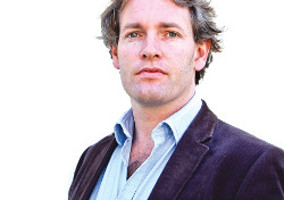Over the last 10 years Catch22 has established itself as a credible provider of a range of public services from children’s social care to offender management – a cradle to career proposition. The majority of this work is delivered through contracts procured via government (local and central) and government agencies.
Much of it is heavily prescribed by the commissioner, overly specified, input-orientated with a focus on measuring outputs. This reflects adherence to an orthodoxy that’s taken hold over the last 30 years, which is the antithesis to a relational, strength-based, approach. It’s driven by a centralising, risk averse, statist philosophy, which ‘designs out’ trust, reciprocity and human agency. Self-reliance as the ultimate goal is undermined.
This is also the framework that governs the wider approach to public service delivery regardless of who delivers it. Success occurs more often in spite of the system than as a facilitated consequence of it. Within this context we have tried to inculcate a culture across the organisation that recognises the pre-eminence of human relationships; that believes in doing what we say we are going to do; and values the wider capability which exists in the communities in which we work, and in those we work with.
Endgame of 'government adoption'
Last year we pivoted Catch22’s business model to focus explicitly on the endgame of ‘government adoption’, defined broadly. Through our public service delivery we would earn the authority and insight to improve the way things were done overall. This was informed by a paper co-authored by Alice Gugelev and Andrew Stern, published in 2015 by the Stanford Innovation Review: What’s your Endgame.
We have long held a view that things need to be different, that our service delivery experience and exposure to those in receipt of our services consistently demonstrated that treating people as recipients, processing their need, and measuring transactional outputs, was not the way to change lives for good.
The Stanford paper provides a framework to re-imagine public services. It has informed a ‘theory of change’ which validates our delivery model. We are credible, we are efficient, we contribute to improving lives at the micro-local level, and we do this across the full range of possible life needs, cradle to career. This allows us to show policymakers that there are other ways of doing things: let’s invest in testing and proving different approaches so in time the DNA of public policy is infected by practice and process that works – we can go viral!
An example of this is a project we delivered in partnership with Cheshire East Council, calling it Fact22. Project Crewe worked with children designated as children in need under section 17 of the 1989 Children and Young People’s Act. We made a modest change to the way this cohort of children were engaged in the care system: we worked directly with them and their families through practitioners and volunteers who didn’t have to be social work qualified. The focus was on what was needed in their lives at that moment, and supporting them through community networks.
'Radical model'
The fact that this was considered radical shows how far the constraints of professional social work have moved us away from the vocation many of us trained in. It works. As of today this radical model has shown a thirty per cent reduction in social work caseloads, and more importantly deflected many children from acute intervention or entering the formal care system. The savings, in terms of resources and life-chances, are significant.
By thinking differently, by recognising relationships matter most, and that there is capacity in the community that can be unlocked, we’ve not only helped to improve lives but demonstrated that a more human and less transactional approach delivers outcomes.
We have taken what we learnt in Crewe and expanded it into other areas of Cheshire, and more recently into Coventry. The Fact22 model exemplifies the three operating principles that govern our approach to public service redesign. We have to be more human, we need to unlock the capacity that exists in our communities, while always ensuring we are locally accountable. My hope in that in a few years we can stop talking about Fact22 as a new model because it’s just the way things are done.
The antidote to centralised, transactional, input focused service design and delivery is to transfer accountability to the most local level, believe in people’s capacity to contribute, and to unlock the enormous amount of resources and capacity that exist across all our communities.
The Endgame for us all should be a re-imagining of the way public services support us, based on notions of trust, reciprocity, capacity and individual potential, and the importance of the relationship. To quote William Blake ‘what is now proved was once only imagined.’ Onwards.
Chris Wright is chief executive of Catch22, a social business driving public service reform.
This essay is one of a series being produced by A Better Way in Insights for a Better Way: Improving Services and Building Communities which is published by Civil Exchange, in partnership with the Carnegie UK Trust. The book will be published on 4 July.
Related articles













